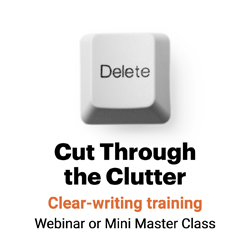Rest, reformat, read aloud and review common errors
By Chris Smith
You spell-checked it, but that story still appeared with a grammar fail or typo. D’oh!

It happens. But to avoid the next awkward FYI email from the boss or a reader (the real boss), try these four proofing techniques.
1. Rest the copy.
Some dishes have to “rest” before cooking proceeds. Your words may benefit, too. Once your copy is ready to publish — you think — set it aside long enough to write or read something else.
Anything else.
Even if it’s just a fresh email or two. Then, let your better self go back and read the supposedly finished copy. Amazing how often you catch something your lame hour-ago-self missed.
2. Reformat the text.
Whatever typeface and page norms you use for drafting or posting copy, take five minutes to select all and then change the typeface you stare at all day to something different (serif or sans-serif, whichever is opposite your standard).
Make the font size larger. Change the margins. Now re-proof what looks like a different draft, with different line breaks. See if a typo jumps out at you.
3. Read it aloud.
Even if you’re one of those excellent writers who mouths the words you are typing, try this related proofreading step: Read the entire piece out loud. Take a breath between sentences to consider each one independently.
You may need to apologize to your office mates or your cat, who may become annoyed.
4. Review common errors.
Keep a written list of your common glitches that a software spell-checker may not detect. Then, with your document open, use the Find feature in Word to step through that list one at a time. If you follow AP style, for example, you might use Ctrl-F to search for:
, and
, or
-ezine, e-mail, Internet
If your industry refers to “public” a lot in writing, search for “pubic.” You’ll thank me later.
Rely on another set of eyes.
Finally, a fifth and even better way to publish clean prose is to have somebody other than yourself read it first. If you don’t have a paid editor for that, find out what coffee or candy your friend, colleague or roommate likes, and proceed accordingly.
____
Chris Smith is a freelance writer, editor and corporate communications consultant in New Orleans. He’s the author of a biography of Twitter’s founders, how-to books on technology, a children’s book on music and an unofficial census of the United States. Chris has edited, fact-checked or proofread dozens of nonfiction books including biographies of Clara Schuman and Alexander the Great, and histories of World War II, Irish Americans and the John Deere company.
He has written across multiple channels for employees of a large electric and gas utility, for schools and colleges, and for health care organizations. Chris has won awards for publication and advertising content, and for Three Things, a column for communications professionals on writing and editing.
You can find Chris at chris@cswriter.com, on Twitter or on LinkedIn.

Leave a Reply